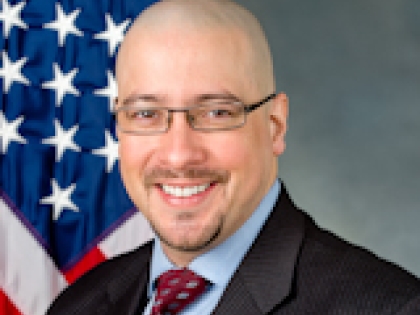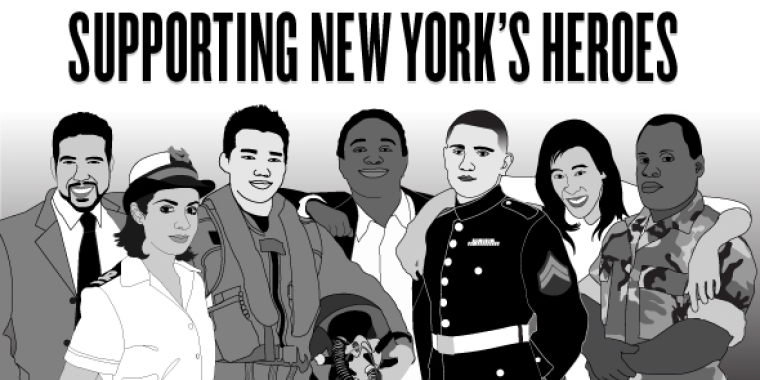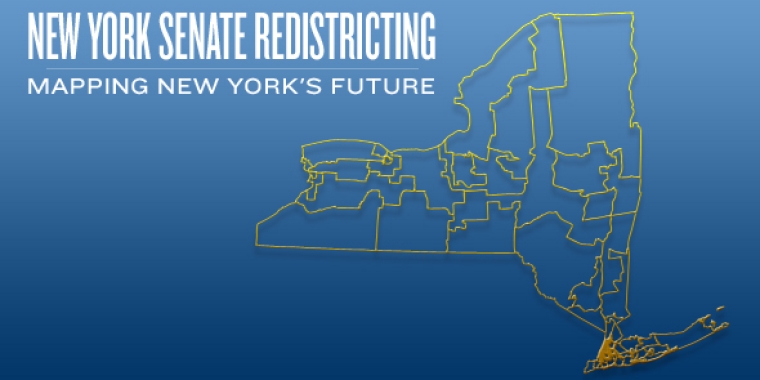
Lawmakers Introduce Bill Requiring Community Input for Hospital Closures
March 20, 2024
(Albany, NY) - Today, State Senator Gustavo Rivera (SD-33) and Assemblymember Jo Anne Simon (AD-52), alongside co-prime sponsors Senators Brian Kavanagh, Kristen Gonzalez, Zellnor Myrie, Michelle Hinchey, and Lea Webb, elected officials, statewide health advocates, and unions, announced the introduction of legislation (S8843/A1633A) that would require public notice and community engagement when a general hospital seeks to either close entirely or close a unit that provides emergency, maternity, mental health, or substance use care. The bill would also strengthen state review of proposed hospital closings.
Across New York State, there have been several incidents when hospitals have announced planned closures of maternity units, emergency departments, mental health and substance use services, and even entire hospitals without any prior communication or meaningful engagement with the local communities they serve.
Currently, State Public Health Law does not require hospitals to give adequate advance notice to key stakeholders like local officials or the potentially impacted community about a planned closure. A public hearing is not required until 30 days after a hospital closure is approved by the state under current statute, although a recent guidance to hospitals by the State Department of Health has changed that, and now requires an advance hearing.
While the new Health Equity Impact Assessment (HEIA) law that Senator Rivera passed into law in 2021 has helped to improve community engagement, it does not apply to closures of entire hospitals. Currently, hospital closures are carried out through a simple notice to the New York State Department of Health and an overall closure plan, not through a Certificate of Need (CON) application. Moreover, these closures are not subjected to a full CON review, which would go before the state Public Health and Health Planning Council for review in a public meeting at which community members could make comments.
The legislation will address these gaps in the state’s review of proposed hospital and critical unit closures by requiring adequate advance notice to local officials and the public, a community forum held 150 days in advance of the proposed closure date to allow public comment on the hospital’s plan, a final closure plan that addresses concerns raised at the community forum, and public disclosure of all submitted plans by the Department of Health.
"Our communities deserve a say when their local hospital might close. New Yorkers deserve transparency and engagement when they might lose access to their closest maternity unit or emergency department, or even the entire facility, when too many already face major health disparities in a broken healthcare system," said State Senator Gustavo Rivera, Chair of the Senate Health Committee and bill sponsor. "This bill will address the gaps in the state’s current review of proposed hospital and critical unit closures and make our communities a key stakeholder in a decision making process with serious impacts on health equity."
Assemblymember Jo Anne Simon, sponsor of A1633a, said, “It’s outrageous that hospitals close with virtually no public notice, engagement, or state oversight. The public ought to know before – not after – their local hospital is shuttered. When SUNY Downstate closed Long Island College Hospital in 2013, the health department didn’t notify or seek input from the communities that LICH had served for 156 years. This included low-income communities of color that had been designated as lacking care health services by the federal government. This harmful trend has only increased across the state and it’s time to reform this process.” She continued, “This bill ensures a role for community input and state review to protect New Yorkers before hospitals or major departments are closed. I’m glad to partner with Senator Rivera and a strong coalition of advocates to pass this bill.”
Closures of entire hospitals or critical units such as maternity wards or hospital psychiatric units can have a devastating impact on the communities that have depended on these facilities for care. For example, just in the last decade, 10 hospitals in New York State closed their maternity services in Columbia, Franklin, Lewis, New York, Niagara, Ontario, Otsego, St. Lawrence and Wyoming counties. Only this year, two more maternity service closures are pending in Rensselaer and Suffolk counties. Further, two major closings of entire hospitals are moving forward in lower Manhattan and in Central Brooklyn, after last year’s closures of another Brooklyn hospital and a hospital in Eastern Niagara County. A recent study by the Center for Healthcare Quality and Payment Reform found that there are 27 rural hospitals in New York State at risk of closing, amounting to 53 percent of all rural hospitals in the state.
State Senator Brian Kavanagh, who is a prime sponsor of the bill and represents Lower Manhattan, said: “Our laws addressing public engagement and oversight of hospital downsizing and outright closures have long been insufficient. This legislation will help to ensure that our communities have a voice in the decisions that directly impact their access to essential healthcare services. This proactive approach will foster transparency, allowing for dialogue among hospital executives, state officials, and affected communities before decisions are made. I have sponsored similar legislation in previous sessions, and I thank Senator Gustavo Rivera and Assemblymember JoAnn Simon, for their partnership in putting forth the new bill we are introducing today, as well as Senator Kristen Gonzalez, Assemblymember Harvey Epstein, and our Lower Manhattan colleagues with whom we’ve worked closely regarding the proposed closure of Mount Sinai Beth Israel Hospital. I look forward to continuing to work with colleagues in government, healthcare advocates, and my constituents, to ensure that our communities have access to the health care services they need.”
“Across New York, hospitals are either closing or cutting entire categories of healthcare from our communities. The result is that we are rapidly losing access to services, especially in rural areas already suffering from a severe lack of medical care. All New Yorkers deserve to know when their healthcare is in jeopardy. This legislation will establish more expansive community input and public notification protocols, ensuring people who stand to be the most impacted can shed light on the far-reaching implications of a service removal or hospital closure. It also provides the state with critical data for addressing healthcare shortages and connecting individuals with the care they need. The ongoing disappearance of healthcare services in our region demands our attention, and I’m proud to co-prime this bill to help address this detrimental challenge," said State Senator Michelle Hinchey.
"As a representative for lower Manhattan, I’ve witnessed firsthand the serious impact hospital closures have on their communities," said State Senator Kristen Gonzalez. "Whether public or private, hospitals have a responsibility to place the well-being of the communities they serve over expediency and/or profit. It's essential that communities have a say in decisions that affect their access to crucial healthcare services. By increasing transparency and accountability in the hospital closure process, this bill is a vital step towards protecting healthcare access for all New Yorkers."
“I represent a rural region in Upstate New York, where many of my constituents live far from the essential health care services that their families rely upon,” said State Senator Lea Webb. “When a hospital closes, there are far-reaching impacts to the residents of regions dealing with maternal healthcare deserts and barriers to care. That is why I am proud to support legislation that will ensure that communities are notified within adequate time when a hospital or medical unit is in danger of closing. New Yorkers deserve transparency and fairness when it comes to the health and wellbeing of their families.”
“I’m proud to co-sponsor the LICH Act, which greatly enhances community power in the face of hospital closures. We have lost too many hospitals to closures without real engagement or planning for the health needs of the neighborhoods they leave behind. My community knows all too well how broken the closure process is. While we address the root causes that lead to closures like unfair Medicaid reimbursement rates, we have to also ensure we have a process for closures that centers community needs,” said Assemblymember Harvey Epstein.
Assemblymember John T. McDonald III, RPh said: "Without proper engagement and notice, hospital unit or service closures devastate access to essential care. The proposed closure of the Burdett Birth Center in my district would leave Rensselaer County as the largest county in the state without maternity care and cause an impact on the entire region. Closures like this one are not just a matter of policy; it's a lifeline being severed in communities. This legislation would help to ensure that every closure decision involves, informs, and empowers the communities it serves."
“In New York, decisions over life-saving medical care should not be made in private boardrooms – they are matters of public health and must be reached through engagement with the communities they impact,” said Assemblymember Grace Lee. “As a result of Mount Sinai’s decision to close Beth Israel Hospital in Lower Manhattan, over 400,000 New Yorkers risk losing access to critical healthcare services, including many of my constituents. I applaud Senator Rivera and Assemblymember Simon for introducing this bill to give New Yorkers a stronger voice in how our healthcare system is run.”
“Across New York State, more and more communities are faced with proposed closures of their local hospitals or vital services such as maternity, emergency or mental health care,” said Lois Uttley, co-founder of Community Voices for Health System Accountability (CVHSA). “Despite the serious consequences for patients, affected community residents often get little or no advance notice and are not meaningfully engaged in discussions about how to protect their access to care. We applaud Senator Gustavo Rivera, Assemblymember Joann Simon and their legislative colleagues for taking action to give communities a say.”
Share this Article or Press Release
Newsroom
Go to NewsroomSupporting New York's Heroes
January 1, 2011

Mapping New York's Future
January 1, 2011
